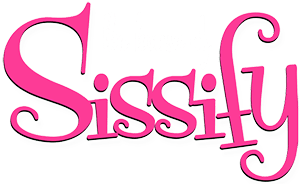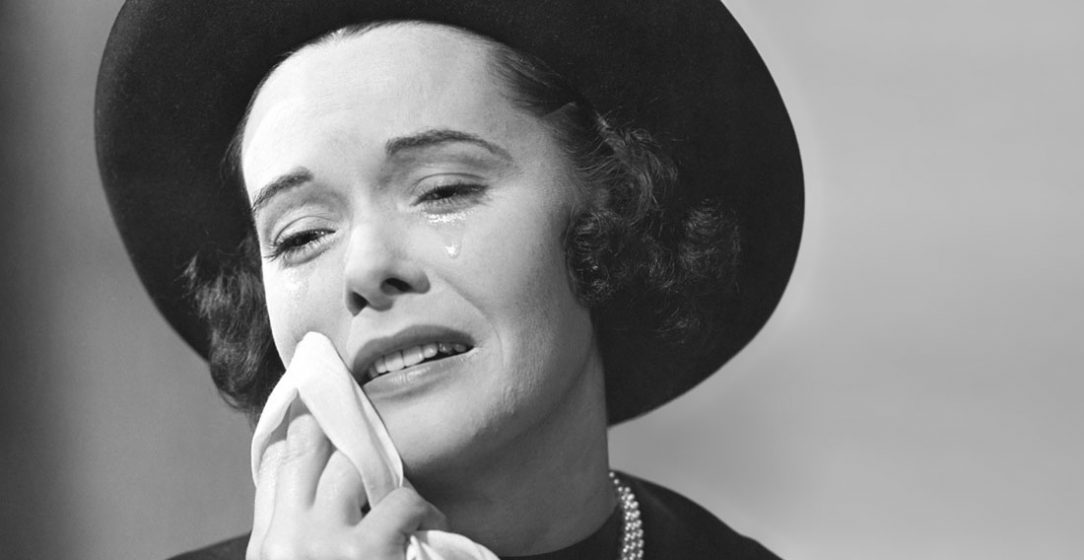Guilt forms the core of our culture’s Judaeo-Christian world view; it is the corner stone of every criminal judicial system and the shady side of every moral theory of duty and obligation; and it is the key to a great number of neurotic syndromes. Psychologists have given guilt considerable attention, and I cannot pretend to do this emotion justice in this brief article. Nevertheless, I can outline some of the characteristics of guilt and reflect upon this phenomenon as it may relate to transvestism and transsexuality.
Objective and subjective guilt
First, let me distinguish between objective and subjective guilt. A person may be found guilty of an offense under a legal or a religious law but not feel guilty. In years past, a person who cross dressed might be found guilty under the law, but not necessarily feel guilty. What I wish to focus on is not this objective form of guilt but the feeling of guilt, the subjective experience of guilt. In its most common manifestations, subjective guilt is self-reproach. In guilt a person is his or her own judge, and typically, a more ruthless and less reasonable judge than any other he or she might encounter. Here the point to stress is when a person feels guilty it is not primarily an external judgment that constitutes the guilt, rather it is a self judgment. A person is guilty before him or herself. Thus, it is understandable how a transvestite or transsexual can feel gnawing guilt even when those around him or her are completely ignorant of his or her situation. Additionally, we must recognize that others cannot be solely responsible for our feelings of guilt. There is no subjective experience of guilt without the dynamic of self judgment.
Guilt undermines self-esteem
Further analysis of the phenomenon of guilt shows the emotion to be a form of self-reproach which leaves the individual feeling acutely inferior. Also, it is difficult to put a fence around guilt and keep it isolated in some corner of one’s personality. Guilt tends to take over the person’s sense of self in a fundamental way. It is very difficult to sweep guilt under the rug.
Guilt and self-punishment
As a judgment of the self by the self, the person experiencing subjective guilt often desires that the self be punished, and will contrive to inflict upon the self various punishments and humiliations, and/or harbor a self hatred that makes living with oneself a tiresome experience. This aspect of guilt is powerfully illustrated in Dostoevsky’s famous story Crime and Punishment. Many transvestites and transsexuals go through a period of self-hate and self punishment to purge themselves of guilt feelings.
Guilt is an aspect of life
It is important to realize that there is no way to completely escape feelings of guilt. Existential philosophers and psychologists have argued that guilt is an aspect of human existence. Guilt arises from the realization that a person never fully develops his or her human potential, that out of so many possibilities the individual can only choose and live some. It is in confronting our freedom and responsibility to choose certain possibilities and to reject others that we realize that we can never have it all. Guilt, as understood by the existential thinkers, has a positive function. It makes us aware when we are living life too narrowly and it is that source of gentle humility which is so much the mark of a compassionate human being. The recognition that guilt has a constructive role in our psychological lives discourages advocating an unconditional purge of the emotion. A totally guilt free life is not a human life, and is often an indication of some severe psychological disturbance. Guilt, as this analysis suggests, can be a positive and a negative phenomenon. The problem, therefore, is how does one distinguish between healthy and unhealthy guilt? I suggest that first of all healthy guilt makes us aware of some potential of the self which invites development and expression. Secondly, healthy guilt signals when we are facing a life issue that requires deeper understanding and a personal decision of some sort. If a person tries to evade existential guilt, then he or she is likely to develop some form of unhealthy or neurotic guilt. Unhealthy guilt leaves the person defensive and vulnerable to a break down of self-esteem. Unhealthy guilt calls up defensive attitudes and behaviors which limit life, rather than expand life. In light of this brief discussion of guilt we can see that the guilt that a transvestite or a transsexual feels may be a healthy guilt or an unhealthy guilt. Some feelings of guilt may be a matter of the individual’s overall lifestyle and not directly related to issues of gender identity or gender expression. A narrow, restricted, undeveloped life will always leave a person feeling guilt. Such guilt is very prevalent within our society. A constructive response to such guilt would be the continued development of talents, interests, and participation in new life experiences. A person’s gender identity or identities is often intimately related with the process of living a fulfilling life. For example, I sense that my life is more fulfilled since I gave myself permission to express, not deny, my feminine identity. If I denied this aspect of my existence, I would likely feel guilt, and it was a sense of guilt that invited me to sincerely accept my feminine identity in the first place. When a transvestite or transsexual denies certain gender attitudes and behaviors which are incongruous with his or her biological sex, guilt may be felt. These feelings of guilt are due to a dishonesty with oneself, a denial of an aspect of one’s experience of life. Some transvestites and transsexuals may experience guilt because a preoccupation with gender identity or cross dressing influences other areas of their lives. The guilt they feel may be related to their unused human potential, and the many concerns that have been set aside as they grappled with their gender confusion. As the individual finds him or herself freer to pursue life guilt will become less a problem.
A transvestite or transsexual is likely to experience guilt because they are confronted with possibilities and choices peculiar to their experience of life. The transvestite and transsexual cannot unreflectively follow the path of social conformity, but is forced to make some crucial personal decisions if he or she is to be honest with him or her self. This exercise of personal freedom and realization of one’s uniqueness gives rise to considerable existential guilt. Again, it is to be remembered that existential guilt is an inescapable aspect of life. It would be incorrect to label this guilt sick or bad. The transvestite and transsexual may also experience guilt which is the result of assimilated social images of what it means to be a man or a woman. The biological male who is indoctrinated to be ruggedly masculine may initially find his masculine persona highly critical of his feminine persona. Guilt is the result. While this guilt is not unhealthy, it can become unhealthy if repressed. A constructive response to this identity conflict would be found in openness to the conflict and a deeper understanding of the dynamics of personal and social identity.
Social identity versus inner experience
An understanding of the relationship between social identity and inner experience is helpful in understanding the dynamics of guilt. The process of socialization, which begins in infancy, finds the individual developing an identity which is an accommodation with his or her environment. In order to be accepted and to gain the security of social connectedness, each individual assimilates a social identity. This identity reflects how society perceives reality and does not necessarily parallel the individual’s experience of life. A division of consciousness takes place. On the one hand a person develops a public persona, a mask, and on the other hand, the person develops a world of inner, private experience. Society encourages the individual to forget that the rules of society are, to a great extent, arbitrary and changeable. In regard to gender identity, the outward-facing persona if modeled after the image of masculinity or femininity that is represented in society. The inward-facing consciousness may not coincide with the persona. Often our inner sense of self is much more diverse and paradoxical than our social identity. The belief that our social identity should be the same as our inner identity may motivate the person to condemn aspects of the inner self. Guilt is the result. Psychological health and maturity requires a constant dialogue between our social identity and our inner experience. If there is no room for acceptance of one’s inner identity, then this division of consciousness may degenerate into a psychological civil war. In summary, here are some conclusions and suggested ways of responding to feelings of guilt;
- Guilt is an aspect of life and is not to be immediately interpreted as something bad or sick.
- Guilt invites greater self awareness; it accompanies a sense of freedom and the exercise of personal responsibility as the individual strives to realize his or her human potential and a necessarily limited number of life possibilities. I believe that individual transvestites and transsexuals who have married and have children experience considerable guilt as they face some very difficult choices.
- The more narrow and restricted a person’s life style and awareness of life, the greater the level of guilt. For the transvestite and transsexual repression is a great source of guilt. Then, on the other hand, when a TV or TS is more self accepting, he or she experiences a higher level of existential guilt due to a heightened awareness of freedom, responsibility, and choice. The former form of guilt is more likely to be unhealthy, the later healthy. Both can be disturbing.
- A basic principle to keep in mind is that guilt becomes unhealthy when it is allowed to restrict one’s life; it also becomes unhealthy when one tries to escape from it.
- Guilt often highlights an inner conflict between personal experience and one’s social persona. Again, denial of this conflict and its associated feelings of guilt will lead to unhealthy guilt. It is better to face and attempt to resolve the conflict through learning more about gender issues, joining a support group, or seeing a knowledgeable therapist. One’s inner experience cannot be ignored. A healthy life permits a dialogue between the social persona and inner experience.
- We cannot blame others for our guilt feelings. Guilt is self judgment.The attempt to evade personal responsibility for one’s guilt will usually lead to the experience of unhealthy guilt. If I fear being different and expressing my uniqueness, and value social conformity more than personal experience then it is my choice to condemn myself for being a transvestite or a transsexual. Those of us who were raised to believe that there is an objective, eternal, moral order which has prescribed how each sex is to appear and behave (e.g. Christian fundamentalists), may find it particularly difficult to resolve this conflict of belief and personal experience. Here again, I suggest that a deeper understanding of the conflict will reveal that truth is more ambiguous than most persons realize or are willing to admit. Much more might be said about guilt, and these reflections are in no way comprehensive. Nevertheless, the reader may find some of these thoughts helpful as he or she confronts feelings of guilt.
by Joanna Galvin, Ph.D.
(Joanna is a psychologist in San Francisco who works with individuals and couples. She is sensitive to gender issues and will, from time to time, be contributing short articles to the ETVC membership on topics relevant to gender issues. If persons have particular issues which they would like Joanna to address, they are requested to write to her via the ETVC newsletter. Joanna is also available for individual consultation and her telephone number can be obtained through one of the ETVC officers.)


